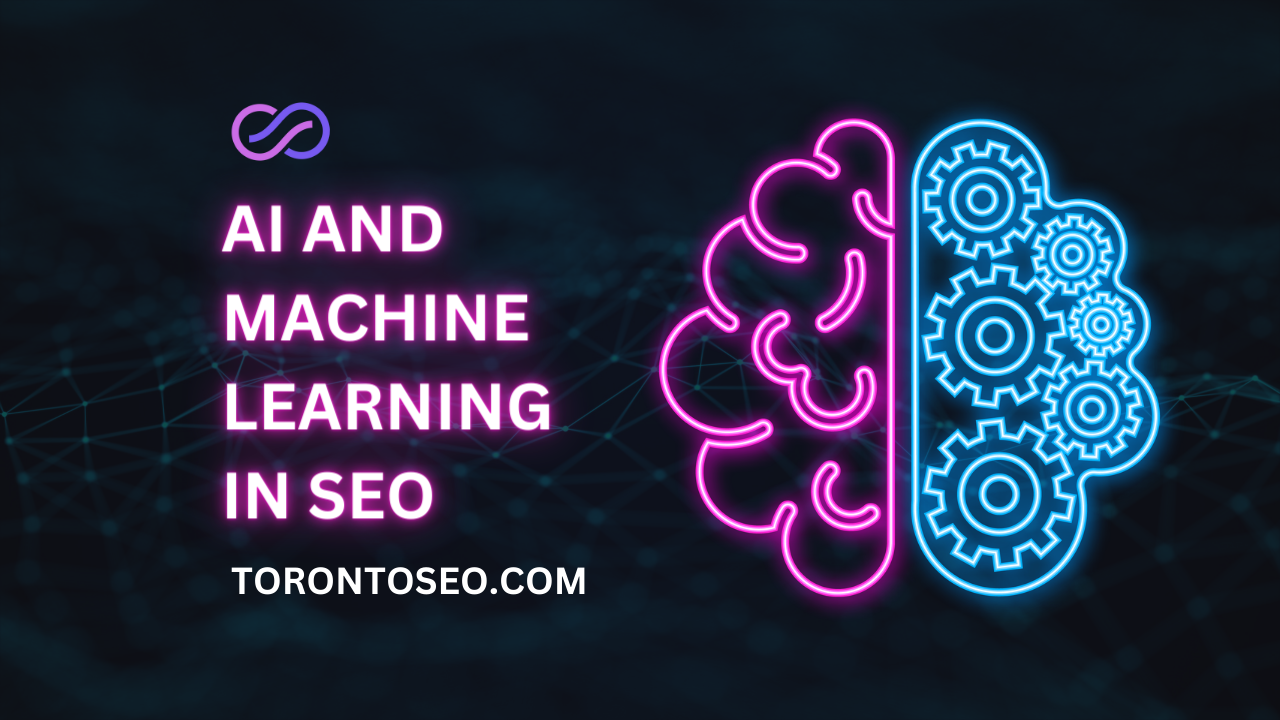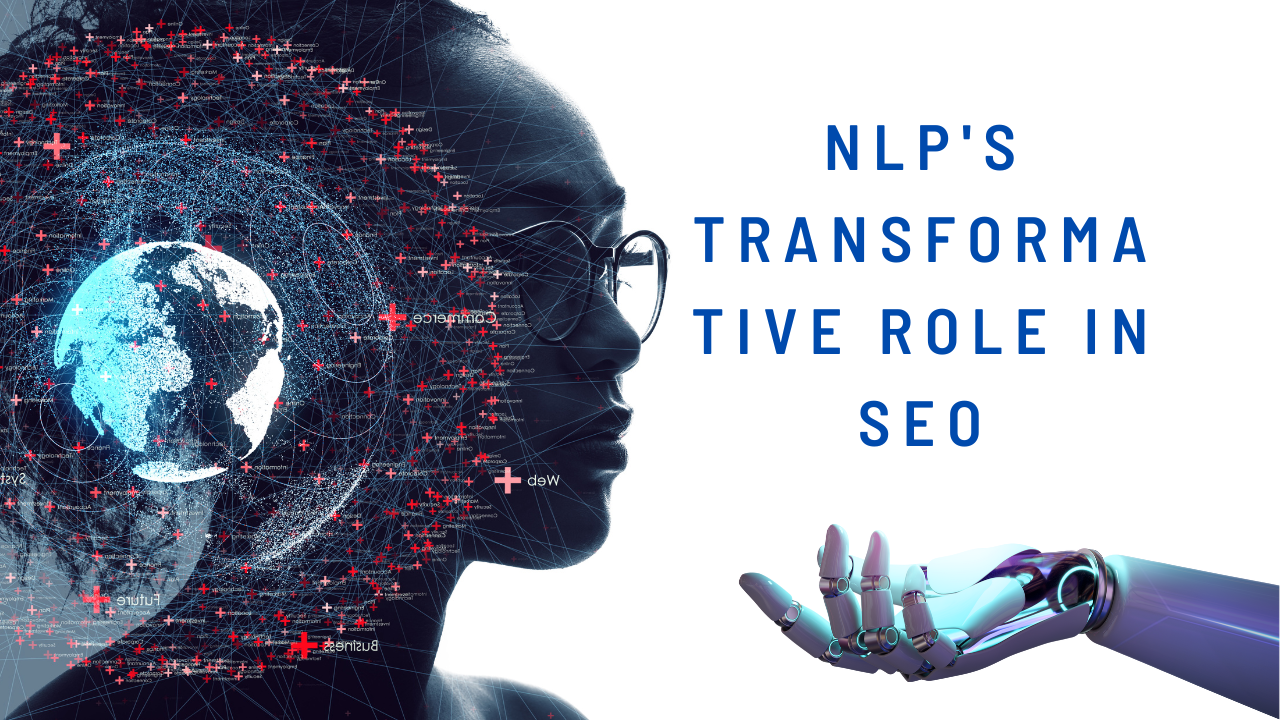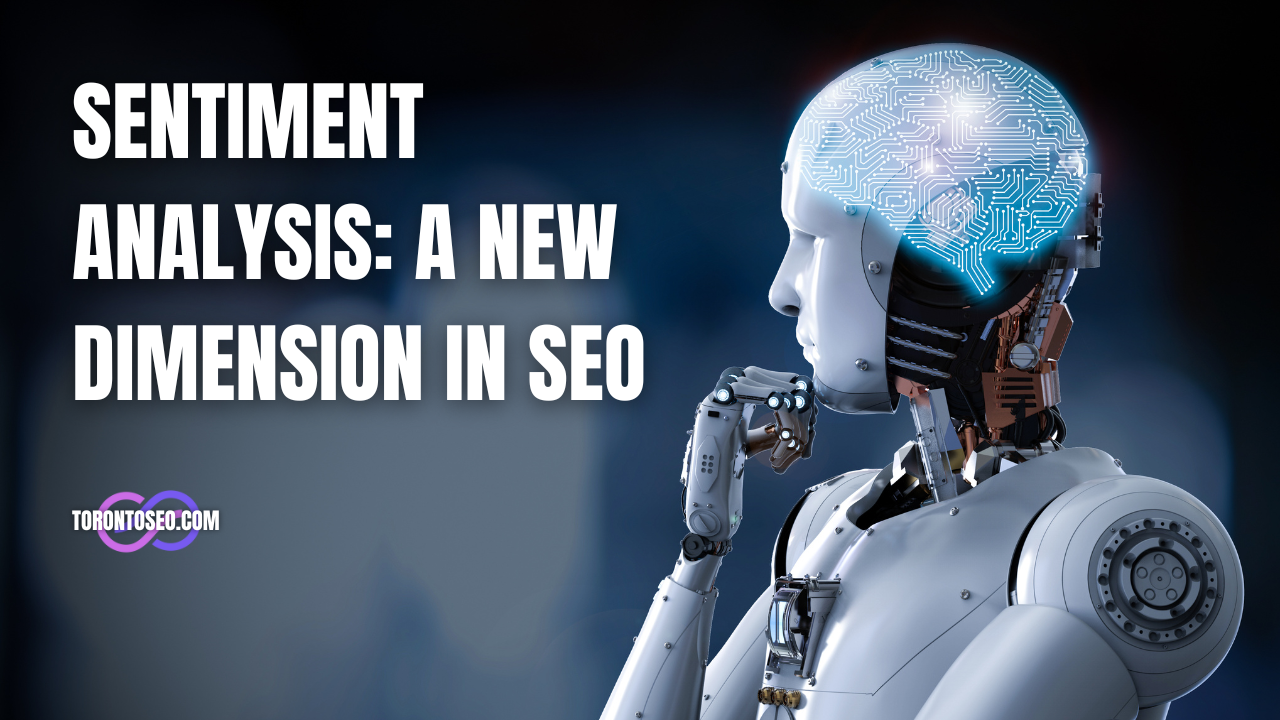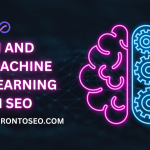
The integration of Artificial Intelligence (AI) in SEO strategies has heralded a new era in digital marketing, where advanced analytics and automation are at the forefront. Leveraging AI’s capabilities in data mining and predictive analytics, SEO now more accurately anticipates user behavior and preferences.
This evolution is significantly aided by Natural Language Processing (NLP), which enhances how search engines understand and process human language, resulting in more relevant and intuitive search results. Simultaneously, AI-driven neural network architectures mimic human cognitive processes, improving the precision of search algorithms.
Incorporating technologies like sentiment analysis and speech recognition, AI in SEO tailors content strategies to provide personalized user experiences, making search engines more responsive and efficient. This transformative integration signifies a shift towards more intelligent, data-driven SEO strategies, essential for businesses to thrive in the dynamic digital landscape.
NLP’s Transformative Role in SEO

Elevating Search Engine Intelligence through Language Understanding
The impact of Natural Language Processing (NLP) on SEO has been transformative, marking a significant advancement in how search engines interpret and interact with human language. This progression is anchored in the ability of NLP to deeply analyze and understand the nuances of language, facilitating more accurate content indexing and enhancing the relevance of search results.
NLP’s integration into SEO strategies leverages advanced data interpretation techniques, which aid in deciphering complex user queries and intent. This integration has also led to the development of more sophisticated machine learning models, enabling search engines to offer personalized user experiences and smart recommendation systems.
By understanding context and sentiment, NLP empowers search engines to deliver results that are not only contextually relevant but also aligned with the user’s specific needs and preferences. Consequently, NLP stands as a cornerstone in the ongoing evolution of SEO, driving a more intuitive, responsive, and intelligent search experience in the digital world.
Deep Dive into Stand Out This Holiday Season: Unique Marketing Ideas from Toronto SEO
Advancements in SEO through Deep Learning
Harnessing Deep Learning for Smarter Search Engine Optimization
The integration of deep learning algorithms in SEO has revolutionized the way search engines analyze data and predict user behavior. These advanced algorithms, a subset of machine learning models, excel in identifying patterns and insights within massive datasets, a critical aspect in optimizing search engine performance.
By utilizing deep learning, search engines have enhanced their understanding of user intent, enabling more accurate and relevant search results. This technology also plays a significant role in feature extraction and data clustering methods, allowing for the development of highly sophisticated, predictive models.
Deep learning’s ability to process and interpret complex data structures has led to smarter, more efficient search engines capable of providing personalized user experiences. This innovation not only improves the accuracy of search results but also significantly boosts the efficiency of SEO strategies, making it an indispensable tool in the ever-evolving landscape of digital marketing.
Optimizing SEO with Neural Networks
Revolutionizing Search Engines through Advanced Neural Architectures
The application of neural networks in SEO marks a significant leap forward in how search engines process and interpret vast amounts of data. These complex network architectures, inspired by the human brain, enable a deeper understanding of patterns, trends, and user behavior.
By implementing neural networks, search engines can more effectively analyze and respond to the intricacies of search queries, leading to more accurate and relevant results. This technology also enhances the capability of search engines in terms of predictive intelligence and adaptive algorithms, allowing for a more dynamic response to changing user needs.
The use of neural networks in SEO signifies a shift towards more intuitive and intelligent search mechanisms, where the emphasis is on delivering highly personalized and context-aware search experiences.
This integration of sophisticated neural technology in SEO strategies is not just a testament to the advancements in artificial intelligence but also a critical factor in shaping the future of digital marketing and search engine optimization.
Deep Dive into Toronto Custom SEO Strategies
Data Mining: A Cornerstone for SEO Enhancement
Uncovering SEO Gold through Advanced Data Techniques
Data mining techniques have become instrumental in SEO optimization, offering a way to unearth valuable insights from vast amounts of online data. By applying these techniques, SEO experts can extract and analyze patterns, trends, and relationships within data, which are crucial for understanding user behavior and preferences.
This analysis supports the development of more effective SEO strategies, tailored to meet the specific needs of the target audience. Moreover, data mining aids in feature extraction and data clustering, essential for creating detailed user profiles and segmenting audiences.
This approach not only enhances the precision of content and keyword targeting but also contributes to the development of predictive models, further refining SEO tactics. Data mining in SEO optimization represents a strategic shift towards more informed, data-driven decision-making, ensuring that digital marketing efforts are not only more efficient but also more resonant with the intended audience.
SEO Strategy Enhancement through Pattern Recognition
Leveraging Pattern Analysis for Optimized Search Results
Pattern recognition plays a pivotal role in modern SEO strategies, enabling a deeper understanding of user behavior and search trends. By identifying and analyzing recurring patterns in user data, such as search queries, click-through rates, and engagement metrics, SEO professionals can tailor their strategies to better align with user preferences and needs.
This approach is supported by sophisticated machine learning models, which aid in discerning these patterns and making data-driven decisions for content optimization. Moreover, pattern recognition contributes to the improvement of predictive analytics, enhancing the ability of search engines to anticipate user queries and deliver more relevant, personalized search results.
By leveraging pattern recognition in SEO, businesses can ensure their content resonates more effectively with their target audience, leading to improved search engine rankings and a more successful online presence.
Streamlining SEO with Automated Decision-Making
The Future of SEO: Intelligent and Automated Strategies
Automated decision-making in SEO represents a significant leap towards more efficient and intelligent digital marketing strategies. By leveraging AI and machine learning algorithms, SEO processes can now automatically analyze data, recognize patterns, and make informed decisions without manual intervention.
This automation extends to various aspects of SEO, including keyword selection, content optimization, and link-building strategies. The integration of predictive analytics and data mining techniques further enhances the capability of these automated systems to anticipate future trends and user behaviors, allowing for proactive strategy adjustments.
This shift towards automated decision-making in SEO not only increases the efficiency of SEO campaigns but also ensures that strategies are data-driven and aligned with the ever-evolving digital landscape. As a result, businesses can achieve more effective and targeted SEO outcomes, staying ahead in the competitive world of search engine rankings.
Reinforcement Learning: Elevating SEO Capabilities
Adaptive Learning for Dynamic SEO Strategy Optimization
The role of reinforcement learning in SEO is emerging as a key driver for dynamic and adaptive strategy optimization. This advanced branch of machine learning operates on a system of rewards and penalties, enabling algorithms to learn from their own experiences and continuously improve their decision-making processes.
In the context of SEO, reinforcement learning is particularly effective in refining search algorithms and content strategies based on real-time user interactions and feedback. It aids in optimizing various aspects of SEO, such as keyword targeting, user experience enhancement, and predictive content creation.
By employing reinforcement learning, SEO strategies become more agile and responsive to changing user preferences and search engine algorithms. This approach not only ensures that SEO tactics remain effective and relevant but also paves the way for more personalized and user-centric search experiences, ultimately contributing to higher engagement and better search engine rankings.
Sentiment Analysis: A New Dimension in SEO

Understanding User Emotions for Tailored SEO Strategies
Sentiment analysis has become a crucial tool in enhancing SEO strategies by providing insights into the emotional tone behind user-generated content and search queries. This branch of natural language processing enables marketers to understand the sentiment behind user interactions, whether they are positive, negative, or neutral.
By integrating sentiment analysis, SEO strategies can be tailored more effectively to resonate with the target audience’s emotional preferences and needs. This approach is especially useful in content optimization and personalization, ensuring that the content not only matches keywords but also aligns with the users’ emotional context.
Additionally, sentiment analysis contributes to smarter decision-making in SEO, as it helps in fine-tuning marketing messages and improving user engagement strategies. Leveraging this technology, businesses can create more impactful and emotionally connected SEO campaigns, leading to enhanced user experiences and stronger customer relationships.
Speech Recognition: Transforming SEO for the Voice-First Era
Adapting SEO to the Growing Trend of Voice Search
The integration of speech recognition technology in SEO marks a pivotal adaptation to the burgeoning era of voice search. This advanced technology allows search engines to accurately interpret and process spoken queries, a key aspect in the era of smartphones and smart home devices.
As voice search becomes increasingly prevalent, SEO strategies must evolve to accommodate the unique nuances of spoken language, which often differs from typed queries. This involves optimizing for more conversational, long-tail keywords and focusing on natural language processing to better understand user intent.
Speech recognition technology also plays a crucial role in making search engines more accessible, catering to a broader range of users, including those with visual impairments or physical challenges. By embracing speech recognition, SEO strategies can tap into the rapidly growing segment of voice-based searches, ensuring that businesses remain relevant and visible in a voice-first digital world.
Revolutionizing SEO with Machine Learning Models
The Power of Predictive Intelligence in Search Engine Optimization
The implementation of machine learning models in SEO is revolutionizing the way search engines operate and how digital marketing strategies are formulated. These models, encompassing a range of algorithms from supervised to unsupervised learning, enable search engines to process and learn from vast amounts of data, continually improving their search algorithms for accuracy and relevance.
By employing machine learning, SEO strategies become more sophisticated in pattern recognition, allowing for more effective targeting and personalization of content. This leads to a significant improvement in user experience, as search results become more aligned with individual user preferences and search intents.
Furthermore, machine learning models facilitate predictive modeling in SEO, enabling marketers to anticipate future trends and user behaviors, thereby crafting proactive strategies.
The integration of machine learning into SEO signifies a shift towards more intelligent, data-driven approaches, ensuring that SEO strategies are not only responsive but also predictive, adapting to the ever-evolving digital landscape.
Predictive Modeling: A Key to Advanced SEO Performance
Proactive Strategies for Future-Proof SEO
Predictive modeling has become a cornerstone in enhancing SEO performance, offering a forward-looking approach to digital marketing. By utilizing predictive models, SEO strategies can anticipate future trends, user behaviors, and search patterns, allowing for the development of more targeted and impactful content and keywords.
This approach is particularly powerful in combination with machine learning algorithms, enabling continuous refinement and optimization of SEO tactics based on predictive data analysis. Predictive modeling goes beyond traditional reactive methods, providing a proactive stance in SEO strategy planning.
It helps in identifying potential opportunities and challenges, ensuring that SEO efforts are not just responsive but also strategically ahead of the curve.
By integrating predictive modeling into SEO, businesses can achieve a competitive edge, as they are better equipped to adapt to the constantly evolving digital landscape and user preferences, leading to improved search rankings and overall digital marketing success.
Empowering Local Businesses with Toronto SEO Expertise
At Toronto SEO, we specialize in elevating local businesses in the digital realm, leveraging our deep understanding of Toronto’s unique market dynamics. Our expertise in the Toronto market enables us to tailor SEO strategies specifically to local audiences, ensuring that businesses stand out in a competitive landscape.
We focus on optimizing local search visibility, targeting city-specific keywords, and creating content that resonates with Toronto’s diverse community. By enhancing online presence through strategic SEO practices, we help businesses attract more local customers, build brand awareness, and effectively compete in Toronto’s vibrant and ever-evolving digital marketplace.





